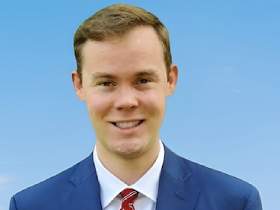
Despite the fact that more than 70 of the 500 other Canadian municipalities that applied were granted extensive federal funding, Niagara Falls was not a recipient. Photo Credit: iStock.
In 2023, the federal Housing Accelerator Fund (HAF) was introduced through the Canada Mortgage and Housing Corporation (CMHC). The program has been providing funds from a total of $4 billion to municipalities across the nation seeking to increase their housing availability. The City of Niagara Falls, with its immensely growing population, has been heralded by local leaders as a prime destination for a portion of the funding. It was recently learned, however, that the initial application submitted by the city was rejected.
“Housing is needed everywhere, it’s not just Niagara Falls, it’s all across Canada,” Niagara Falls City Councillor Victor Pietrangelo argued in a recent council meeting. “That tells you that municipalities are ready to invest in housing. We just need upper-level government support.”
According to Signe Hansen, Senior City Manager of long-range planning initiatives, the application submitted on behalf of Niagara Falls met all of the criteria set forth by the federal government for ensuring that future housing projects will be affordable, accessible and environmentally friendly.
However, despite the fact that more than 70 of the 500 other Canadian municipalities that applied were granted extensive funding, Niagara Falls was not a recipient. Meanwhile, the neighboring City of St. Catharines was given $21.5 million. If Niagara Falls’ funding request for $45.2 million had been accepted, it would have helped the city to construct 1,668 new housing units in three years and 9,660 over the next ten years.
Niagara Falls Mayor Jim Diodati is frustrated by the exclusionary approach to securing the funding, in which municipalities can meet all of the requirements but still come up short. Diodati was also curious if other municipalities utilized lobbying in order to advance their case, speculating that cities that do not have Liberal MPs to advocate for them could be at a disadvantage.
Hansen, for her part, pointed to her transparency from the beginning that the number of applicants would exceed the originally available funding amount. She said that it has not been uncommon for municipalities to retain consultants to help with the application. The City of Niagara Falls, Hansen shared, received assistance from Dillon Consulting. Hansen also noted that Prime Minister Justin Trudeau announced that there would be another $400 million added to HAF, under Budget 2024, and that her team was seeking further information from CMHC on next steps. It is expected that the city will submit another bid during the second round of applications, which will be accepted between July 15 and September 13.
The inaugural funding focused on building 100,000 permitted new residences before the end of 2026 and more than 750,000 permitted new homes nationwide by the mid 2030s. The second distribution, however, is specifically seeking to facilitate efficient home construction at a municipal level, in order to procure 12,000 new permitted homes by the end of the decade.
The $400 million from this round of funding will only be available to cities that were not successful in their first applications. In order to qualify for the new funding, municipalities will need to revise their applications to reflect best practices from round one, as it relates to tangibly improving housing affordability and supply. Cities that wish to apply under the large/urban stream must also ensure their action plans include four units as-of-right bylaws.
Although the likelihood of Niagara Falls having their funding request approved may be greater this time, the city is not relying on it for their infrastructure plans.
“Niagara Falls is undertaking a number of initiatives despite what the outcome of the funding application is,” Chief Administrative Officer Jason Burgess told The Niagara Independent. “Initiatives include the purchase of 12 affordable units which will be priced and sold on the market affordably, as well as the redevelopment of the Park Street project for more purpose-built rentals.”
“We will continue to move forward regardless, and to look for solutions and ways to help. We would certainly welcome federal government support for these initiatives, but we continue to move full speed ahead to meet the growing need in our community.”

Nick Redekop completed his Honours Bachelor of Arts Degree in Labour Studies at Brock University. He has previously served in municipal and federal politics. In his free time, Nick enjoys following sports, taking part in outdoor activities, and reading biographies. Nick resides in Niagara Falls




















